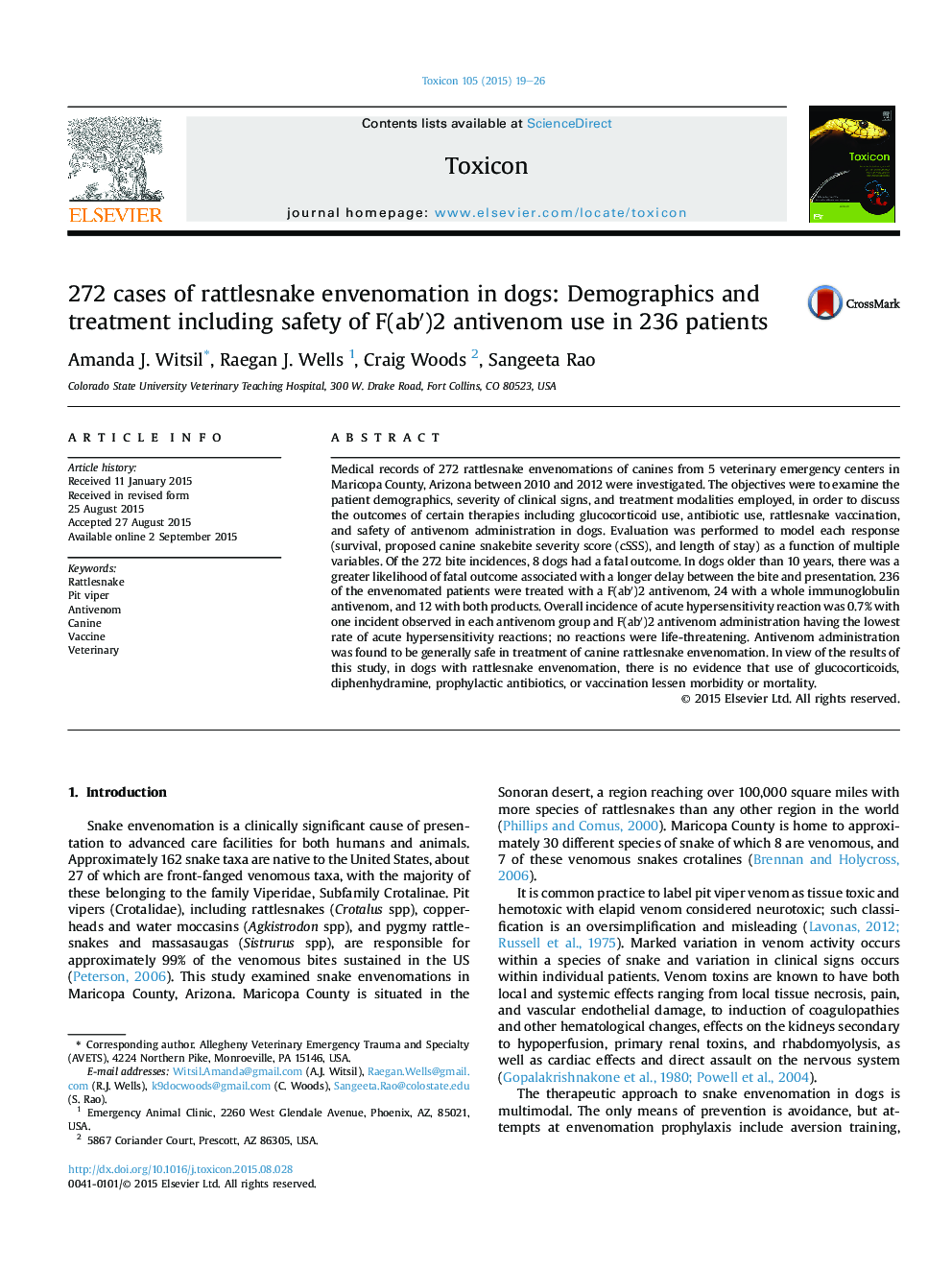| کد مقاله | کد نشریه | سال انتشار | مقاله انگلیسی | نسخه تمام متن |
|---|---|---|---|---|
| 2064305 | 1544130 | 2015 | 8 صفحه PDF | دانلود رایگان |

• Treatment and survival of 272 dogs envenomated by rattlesnakes were investigated.
• Survival and canine snakebite severity score were measures of outcome.
• Other treatment and patient variables were assessed as a function of outcome.
• F(ab′)2 antivenom use had a low risk of acute hypersensitivity reaction.
• Glucocorticoids, diphenhydramine, antibiotic, and vaccine use was not supported.
Medical records of 272 rattlesnake envenomations of canines from 5 veterinary emergency centers in Maricopa County, Arizona between 2010 and 2012 were investigated. The objectives were to examine the patient demographics, severity of clinical signs, and treatment modalities employed, in order to discuss the outcomes of certain therapies including glucocorticoid use, antibiotic use, rattlesnake vaccination, and safety of antivenom administration in dogs. Evaluation was performed to model each response (survival, proposed canine snakebite severity score (cSSS), and length of stay) as a function of multiple variables. Of the 272 bite incidences, 8 dogs had a fatal outcome. In dogs older than 10 years, there was a greater likelihood of fatal outcome associated with a longer delay between the bite and presentation. 236 of the envenomated patients were treated with a F(ab′)2 antivenom, 24 with a whole immunoglobulin antivenom, and 12 with both products. Overall incidence of acute hypersensitivity reaction was 0.7% with one incident observed in each antivenom group and F(ab′)2 antivenom administration having the lowest rate of acute hypersensitivity reactions; no reactions were life-threatening. Antivenom administration was found to be generally safe in treatment of canine rattlesnake envenomation. In view of the results of this study, in dogs with rattlesnake envenomation, there is no evidence that use of glucocorticoids, diphenhydramine, prophylactic antibiotics, or vaccination lessen morbidity or mortality.
Journal: Toxicon - Volume 105, October 2015, Pages 19–26